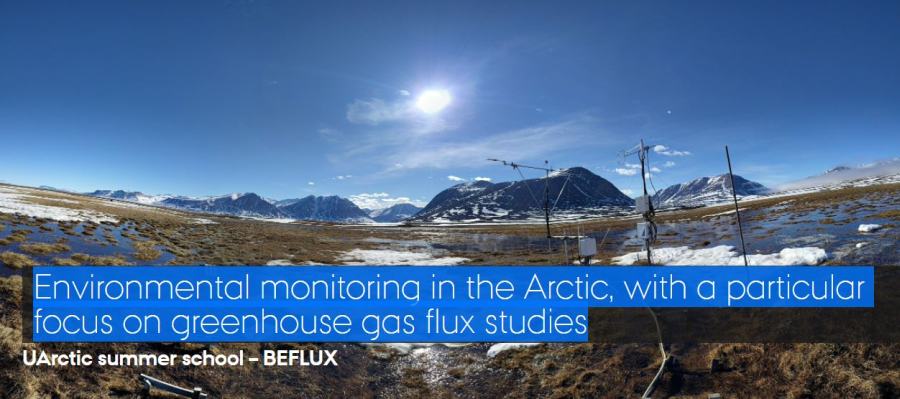Invitation to apply for the UArtic summer school course:
Environmental monitoring in the Arctic, with a particular focus on greenhouse gas flux studies (BEFLUX)
-----
Course parameters in short:
- ECTS credits: 5
- Language: English
- Level of course: PhD level, but MSc students as well as other participants from indigenous groups or local organizations working on the topic are welcome to apply.
- Time of year: 12-22 September 2022.
- No. of contact hours/hours in total incl. preparation, assignment(s) or the like: 75/125
- Capacity limits: 15 participants
About the course
The course consists of lectures and of hands-on training including analyzing existing observational data as well as obtaining own data from the field. The course will focus on a wide climatic gradient from the southernmost part of the Arctic, Oulanka, Finland, to the high Arctic Zackenberg, Greenland. We will use an existing database consisting of more than 2000 ecosystem variables that have been monitored continuously for the last 25 years in Greenland. These data provide the basis for student projects looking at cause-effect relationships between climate dynamics and ecosystem responses with an emphasis on terrestrial greenhouse gas exchanges. The database also serves as background for hands-on training on validating ecosystem models and remote sensing imagery.
The fieldwork will take place at Oulanka where practical measurements will follow the exact same methodologies as those used in Greenland. In addition, the course attendants will be exposed to see and test new techniques and instruments, such as drone based measurements and state-of-the-art automatic chambers methods. The practical fieldwork and collection of own data in Oulanka will be complemented with the comparison of these own data with other multiple years of C cycle observations and models from the boreal to tundra climatic gradient. This exercise provides the opportunity to study the complexities involved in measuring and analyzing data on ecosystem responses to different and changing climate regimes.
The course is organized in a collaboration between University of Oulu, Finland (Uleåborg), and the universities of Aarhus, Oslo, Copenhagen and Helsinki, and the Greenland Institute of Natural Resources. Lecturers include:
- Professor Torben Røjle Christensen (University of Aarhus/University of Oulu)
- Professor Thomas Friborg (Copenhagen University)
- Researcher Norbert Pirk (University of Oslo)
- Researcher Efrén López-Blanco (Greenland Institute of Natural Resources)
Students accepted to take the course will obtain a predefined travel allowance and the accommodation at Oulanka, Kuusamo, Finland covered by UArctic.
Application deadline is 15 April 2022.
If you have any questions, please contact Torben Røjle Christensen, e-mail: torben.christensen@au.dk
About The University of the Arctic (UArctic)
 The University of the Arctic (UArctic) is a cooperative network of universities, colleges, research institutes and other organizations concerned with education and research in and about the North.
The University of the Arctic (UArctic) is a cooperative network of universities, colleges, research institutes and other organizations concerned with education and research in and about the North.
UArctic builds and strengthens collective resources and infrastructures that enable member institutions to better serve their constituents and their regions.
